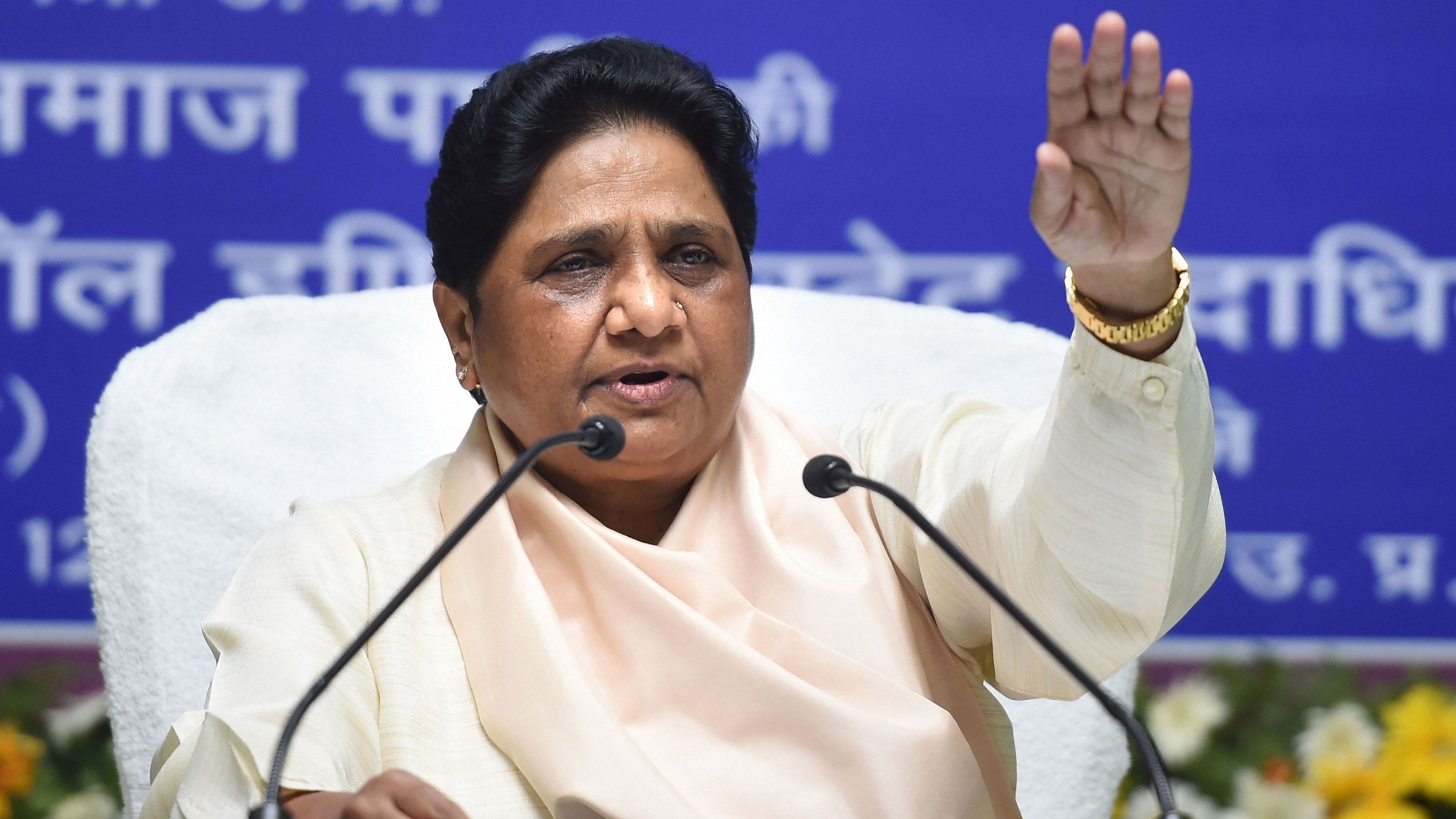
BSP supremo Mayawati.
Credit: PTI Photo
Lucknow: Sub-classification of SCs and STs for reservations is divisive for these classes, BSP president Mayawati said on Saturday and asserted that her party, which "united" the "persecuted" castes, would make no compromise on the issue.
The former Uttar Pradesh chief minister also targeted the Andhra Pradesh, Karnataka, Telangana and Tamil Nadu governments over their handling of the issue in light of the Supreme Court's August 1 verdict on the matter.
"The issue of classification of Scheduled Castes (SCs)/Scheduled Tribes (STs) reservation and creamy layer is also divisive for these classes, whereas the BSP is a humanitarian movement to unite these people who have been divided and persecuted on the basis of caste for centuries and create a 'Bahujan Samaj', and hence no compromise is possible. The party is extremely serious about this issue," Mayawati said in a series of posts in Hindi on X.
The Bahujan Samaj Party (BSP) chief also criticised the actions of several state governments on the matter.
"The politics of dividing SCs and STs being done by the governments of Karnataka, Telangana, Andhra Pradesh, and Tamil Nadu even before the Supreme Court's decision is not right. Especially the attitude of the Congress governments here is highly condemnable in this matter," she said.
Taking aim at members of her party who supported the classification policies, she said, "Those who, while being in the BSP, support the classification of SCs/STs and creamy layer like the Congress and do not have the missionary thinking of Dr Bhimrao Ambedkar, they have no place in the BSP. That is, it is not right to ignore the interests of the rest of the Bahujan Samaj for the benefit of one person."
In her final post, she suggested that members with conflicting views should leave the party.
"Therefore, if people with such a mentality leave the party on their own or are separated, then it will be good for the BSP and the movement. Anyway, the divide-and-rule strategy of the Congress-INDIA alliance will not work under the guise of this. People should be alert," she said.
In a landmark verdict on August 1, the Supreme Court held that states were constitutionally empowered to make sub-classifications within SCs, which formed a socially heterogeneous class, for granting reservation for the uplift of castes that were socially and educationally more backward among them.
The apex court had, however, made it clear that states had to make sub-classification on the basis of "quantifiable and demonstrable data" of backwardness and representation in government jobs and not on "whims" and as a matter of "political expediency".
A seven-judge constitution bench headed by Chief Justice DY Chandrachud, by a majority of 6:1, had set aside the apex court's five-judge bench verdict of 2004 in the EV Chinnaiah vs State of Andhra Pradesh case that had held that no sub-classification of SCs could be allowed as they were a homogeneous class in themselves.